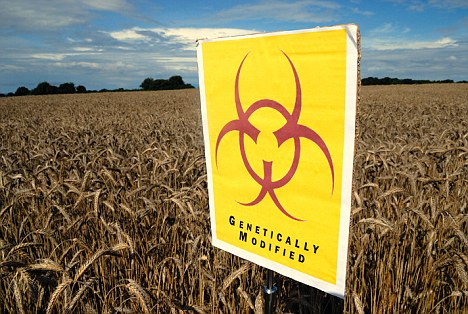GeneWatch UK today responded to Rothamsted Research’s admission that its field trial of GM wheat failed to repel aphids by highlighting the shocking waste of taxpayers’ money used to promote GM.

“With GM crops it’s always jam tomorrow and never jam today” said Dr Helen Wallace, Director of GeneWatch UK, “We have had more than 30 years’ of promises of useful traits but they have not been delivered, despite massive promotion of GM technology by governments and PR companies. There is a big opportunity cost because billions in R&D funding could have been spent in better ways. GM has consistently been shown to be a distraction away from developing real solutions to real problems”.
In reality, GM has delivered just two traits; is grown on only around 3 percent of global farmland; and used in only four crops; the products of which mostly go to animal feed and biofuels. The vast majority of GM crops, about 85 percent of land area grown, contain the Roundup Ready trait patented by Monsanto. They are now failing in the field due to the growth of superweeds resistant to the weedkiller RoundUp which is blanket sprayed on these GM plants. RoundUp Ready GM crops cause well-documented harm to wildlife, including a 90 percent crash in the Monarch butterfly population in the USA over the past 20 years and RoundUp was recently declared a probable carcinogen by the World Health Organisation’s cancer agency . The next generation of GM crops are tolerant to more weedkillers, such as 2,4-D and dicamba, in an attempt to overcome the superweeds problem.
More than 19,000 field trials of other traits have been conducted in the USA, but new traits have not been delivered.
RoundUp Ready maize produced by Syngenta is the only GM crop in the pipeline for commercial growing in the EU that would be suitable for growing in Britain.
“We must now recognise that GM has had its chance and failed to deliver” said Dr Wallace. “We must move on to an agricultural system that does work and produces safe food that consumers want and that doesn’t damage the environment; and our research systems need to now move away from their stubborn obsession with GM and instead provide what the public wants and the environment needs.”
GeneWatch UK has previously highlighted the high failure rate of experimental GM crops and the collaboration between government-funded scientists, ministers and industry on a PR strategy to try to rehabilitate GM crops in Britain and weaken regulations. The industry’s PR strategy is based on using public money to get academic scientists to promote promises of future GM crops, which provide magical solutions to complex problems, as a distraction from the actual problems experienced by farmers growing GM crops on the ground today.



















Grow hemp
Cisgenic Genetically Engineered (GE) Clearfield Wheat is a mutagenically created food and is Genetically Modified Organism (GMO) created by BASF as a “hybridization” product unregulated by the FDA because the USDA ruled it is “significantly equivalent” to a natural hybrid.
Sound familar!
The same argument Monsanto uses with it’s Transgenic GMOs